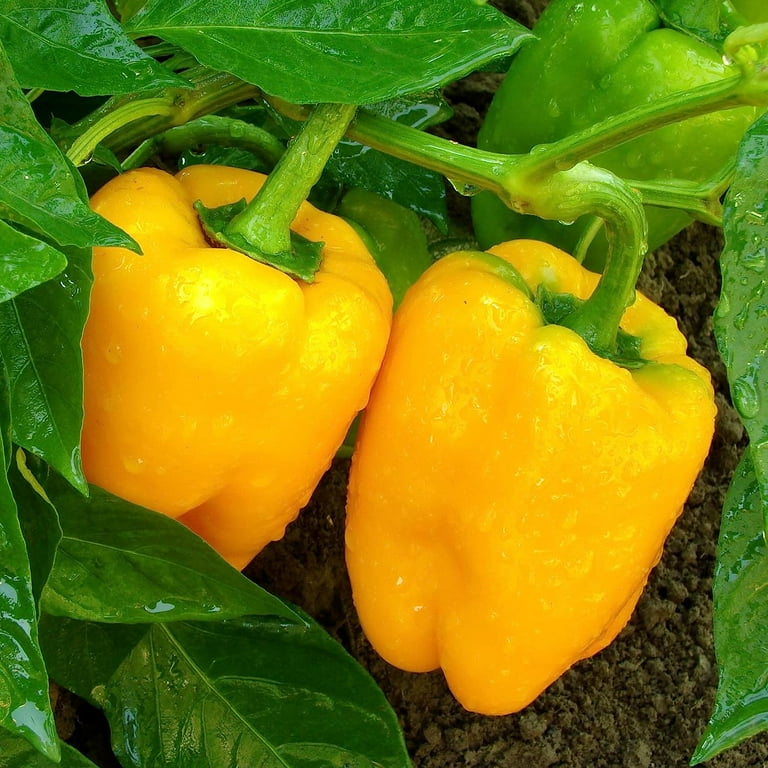Choosing the Best Fertilizers for Peppers: Expert Recommendations
Choosing the Best Fertilizers for Peppers: Expert Recommendations
Blog Article
Organic Vs. Synthetic Fertilizers: Which Is Best for Nurturing Healthy And Balanced Pepper Plants?
In the realm of supporting healthy pepper plants, the choice between synthetic and organic plant foods stands as a crucial decision with significant effects. While both options aim to offer vital nutrients to sustain plant development, the subtleties of their influence on the dirt, plant health, and the atmosphere trigger a dispute that mirrors throughout the horticulture neighborhood. Recognizing the unique advantages and potential mistakes of each fertilizer type is important for pepper growers seeking to enhance their yields while preserving a sustainable and eco-conscious strategy.
Advantages of Organic Plant Foods
Organic plant foods provide an environmentally-friendly and sustainable strategy to beneficial pepper plants, giving crucial nutrients without the usage of synthetic chemicals. These natural fertilizers are originated from organic sources such as compost, manure, bone dish, and algae, advertising soil health and wellness and biodiversity. Unlike artificial plant foods, natural options release nutrients slowly, guaranteeing a stable and balanced supply for pepper plants to grow.
One considerable benefit of natural plant foods is their capacity to boost dirt structure and water retention. By enhancing soil wellness, natural fertilizers advertise beneficial microbial activity, which assists in nutrient uptake by pepper plants. Furthermore, organic plant foods minimize the danger of chemical run-off, safeguarding water resources from contamination and protecting the environment.
Furthermore, natural fertilizers contribute to long-lasting soil fertility by advertising the growth of valuable soil organisms. These microorganisms assist damage down raw material, launching nutrients in a form that is quickly available to pepper plants. best fertilizers for peppers. By cultivating a healthy and balanced dirt ecosystem, organic fertilizers support sustainable pepper growing methods that profit both plants and the setting
Drawbacks of Synthetic Fertilizers
Synthetic plant foods, in contrast to their organic counterparts, posture numerous disadvantages when used to nourish pepper plants, affecting both plant health and wellness and ecological sustainability. One significant disadvantage of artificial plant foods is their propensity to seep nutrients from the dirt swiftly.
Moreover, the overuse of synthetic fertilizers can add to water pollution. Excess fertilizers not absorbed by plants can get rid of into water bodies, causing eutrophication, where algae flowers diminish oxygen levels in the water, hurting water life. Moreover, synthetic fertilizers are generally originated from non-renewable sources, such as nonrenewable fuel sources, adding to carbon discharges and environmental degradation during their production.
Nutrient Absorption Contrast
When comparing artificial and organic fertilizers in terms of nutrient absorption, natural plant foods have the advantage of giving a more well balanced and slow-release source of nutrients. Organic plant foods have a selection of macro and micronutrients that are not only valuable for the plants but likewise advertise healthy and balanced soil microbial activity, which assists in nutrient uptake.
Furthermore, organic plant foods enhance dirt framework and water retention capability, enabling pepper plants to gain access to nutrients extra successfully. This better dirt top quality facilitates root development, enabling better nutrient absorption. Synthetic fertilizers, although at first enhancing plant growth because of their high nutrient focus, might impede lasting nutrient absorption by degrading dirt health and wellness over time.
Environmental Effect Considerations

On the various other hand, synthetic fertilizers, although often even more focused and quickly offered to plants, can have destructive results on the atmosphere useful source if not used effectively (best fertilizers for peppers). Their manufacturing calls for high power inputs, bring about greenhouse gas exhausts and adding to environment adjustment. Additionally, the overflow of excess synthetic fertilizers can infect water resources, bring about eutrophication and damaging marine ecosystems.
Ideal Fertilizer Practices for Peppers
When fertilizing pepper plants, maximizing nutrient uptake and reducing ecological impact are vital considerations. To attain this, it is vital to adhere to finest fertilizer techniques customized to the particular demands of pepper plants. One important practice is to do a dirt test prior to applying any type of fertilizers. This examination can identify the pH degree of the dirt and determine any kind of nutrient deficiencies, leading you in choosing one of the most suitable fertilizer formulation.
An additional essential method is to feed pepper plants at the appropriate time. Usually, peppers gain from receiving fertilizer at planting and after that once again when they start to blossom. Over-fertilizing can result in nutrient imbalances and damage the plants, so it is important to follow advised application rates.
Additionally, choosing a well balanced plant food with an NPK ratio that suits pepper plants' requirements is fundamental. Inevitably, incorporating artificial and organic fertilizers judiciously can assist nurture healthy and balanced pepper plants while reducing environmental influence.
Final Thought

Organic plant foods use a sustainable and environmentally-friendly strategy to beneficial pepper plants, providing essential nutrients without the usage of artificial chemicals. Unlike synthetic fertilizers, natural choices release nutrients gradually, making certain a consistent and well balanced supply for pepper plants to flourish.
Synthetic plant foods, in contrast to their organic equivalents, position numerous drawbacks when made use of to nourish pepper plants, influencing both plant health and wellness and ecological sustainability. When comparing artificial and natural fertilizers in terms of nutrient absorption, organic plant foods have the advantage of offering a much more balanced and slow-release source of nutrients.In addition, organic plant foods enhance soil framework and water retention capacity, enabling use this link pepper plants to access nutrients much more successfully.
Report this page